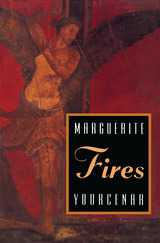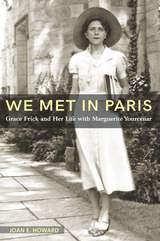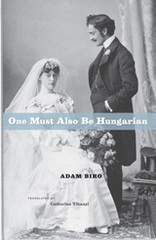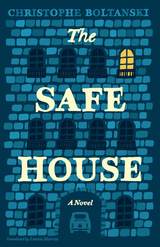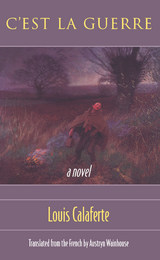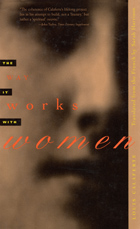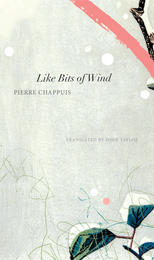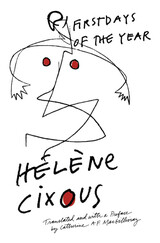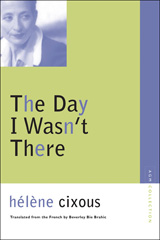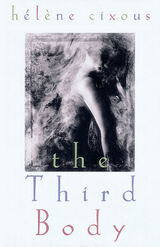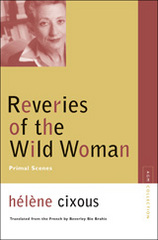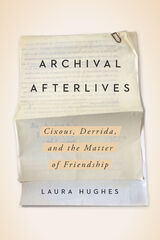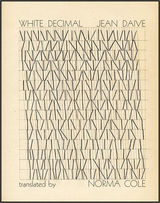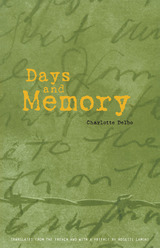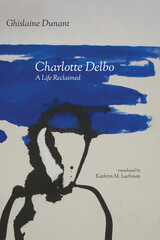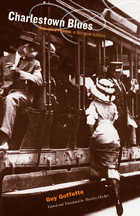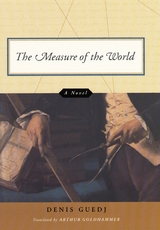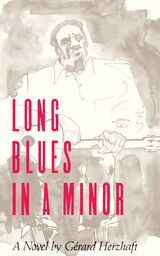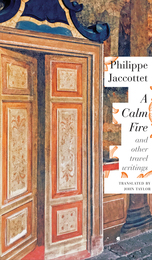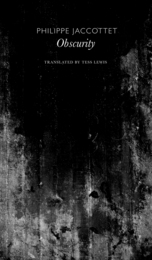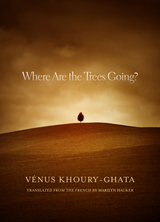The Day I Wasn't There
Northwestern University Press, 2006
eISBN: 978-0-8101-6178-8 | Paper: 978-0-8101-2364-9 | Cloth: 978-0-8101-1937-6
Library of Congress Classification PQ2663.I9J6913 2006
Dewey Decimal Classification 843.914
eISBN: 978-0-8101-6178-8 | Paper: 978-0-8101-2364-9 | Cloth: 978-0-8101-1937-6
Library of Congress Classification PQ2663.I9J6913 2006
Dewey Decimal Classification 843.914
ABOUT THIS BOOK | AUTHOR BIOGRAPHY | TOC | REQUEST ACCESSIBLE FILE
ABOUT THIS BOOK
In this memoir-novel, a narrator who resembles Hélène Cixous obsessively recounts an incident--the premature death of her first-born child, a Down Syndrome baby left in the care of the clinic in Algeria where her midwife mother works. She uses this event to probe her family history and her relationship with her mother, a refugee from Nazi Germany; her dead father, after whom the baby is named; and her medical-student brother, who takes on some of the duties of a father figure.
Cixous's elusive writing bears all the trademarks of her poetic, provocative style, vivid with word play, intense feeling and a stream-of-consciousness that moves freely over time and place. The narrator's mother claims not to remember what happened, and the brother tries to fill in some gaps in the story. By the end of the book we understand the significance of the title: one day Cixous's mother returned to the clinic to find the baby on the brink of death. Rather than attempt to save him she chose to end his suffering.
By closing the door to the imaginary clinic at the end, the narrator at last resolves the feelings of guilt and realizes that each human being has a fate they must endure. Informed by psychoanalytical theory, and always brutally honest, The Day I Wasn't There is above all an intimate study of a woman's inner landscape.
Cixous's elusive writing bears all the trademarks of her poetic, provocative style, vivid with word play, intense feeling and a stream-of-consciousness that moves freely over time and place. The narrator's mother claims not to remember what happened, and the brother tries to fill in some gaps in the story. By the end of the book we understand the significance of the title: one day Cixous's mother returned to the clinic to find the baby on the brink of death. Rather than attempt to save him she chose to end his suffering.
By closing the door to the imaginary clinic at the end, the narrator at last resolves the feelings of guilt and realizes that each human being has a fate they must endure. Informed by psychoanalytical theory, and always brutally honest, The Day I Wasn't There is above all an intimate study of a woman's inner landscape.
See other books on: Biography & Autobiography | Brahic, Beverley Bie | Cixous, Helene | Day | Literary Figures
See other titles from Northwestern University Press

